Top 7 Best Phones for Privacy: Safeguarding Your Digital Life
According to statistics, over 80% of Americans (more than 270 million people) own a smartphone, spending on average 5 hours a day on their mobile devices. But have you ever wondered if your phone protects your sensitive data when making a call, sending a text, or scrolling your Instagram feed? The thing is that not all smartphones are equally secure. So if you prioritize your digital safety and privacy when choosing one, we got you covered. Read on to discover the best phones for privacy in 2024.

How private is your smartphone?
Before diving into our picks of the most secure phones, let’s briefly overview the most critical factors that impact a device’s privacy. You may want to consider them when evaluating your phone’s reliability or making a final buying decision.
First, look at the phone’s operating system. Although Android and iOS are undoubtedly the most popular options (70% and 28% of market share, respectively), some consider Linux even better for customer privacy (stay tuned to learn why). Also, many claim that Google’s Android OS is designed to collect user data for targeted advertising. On the other hand, unlike Apple’s OS, Android is open-source, which means that anyone can check it for potential vulnerabilities and help fix security issues.
Second, prioritize smartphone security features a particular device offers. The most crucial to consider are biometric lock screens, locker apps, disk encryption, password manager, application sandbox, and so on. Read our blog posts on how to adjust Android and iPhone privacy settings to learn more.
And finally, apart from decent cybersecurity capabilities, a smartphone should meet your personal expectations, such as solid performance, good camera, long battery life, and more.
So, which phones are considered the best security-wise? Let’s jump into our list of the best smartphones for privacy to find out.
7 best smartphones for privacy and security
Here are the best phones to maintain your digital privacy. Note that this is not a ranking but a list consisting of both popular and less well-known manufacturers and models.
1. Apple iPhone 15 Pro Max
Screen: 6.7″(diagonal) Super Retina XDR display
Memory: 8GB RAM
Storage: 256GB to 1TB
Battery: Li-Ion 4,441mAh
Safety: Emergency SOS, crash detection, Roadside Assistance via satellite, control of apps’ permissions
Operating system: iOS
Apart from outstanding design and top-notch functionality, the device on this mobile OS, iPhone 15 Pro Max, is famous for its strong privacy and security features. But is all that hype around Apple devices’ safety reasonable?
To answer this question, let’s look at the main security perks the new iPhone offers:
- Secure and effective processor. iPhone 15 Pro Max has AA17 Pro chip with a 64-bit ARM system on a chip (SoC) and a new 16-core Neural Engine empowered with Machine Learning (ML) capabilities.
- Face ID. Apple’s technology for facial recognition adopts a TrueDepth camera, which analyzes your face in great detail before unlocking the screen.
- App Tracking Transparency. This new iPhone feature requires all apps to request permission before tracking your activity across other apps and websites. Besides, you can manage app permissions and data collection in your device’s settings.
- Hardware-based security. The device keeps your private information locally instead of storing it on a remote server, which enhances its reliability and performance. Most sensitive data, including location tracking, credit card, and biometric details, never leave your phone’s storage.
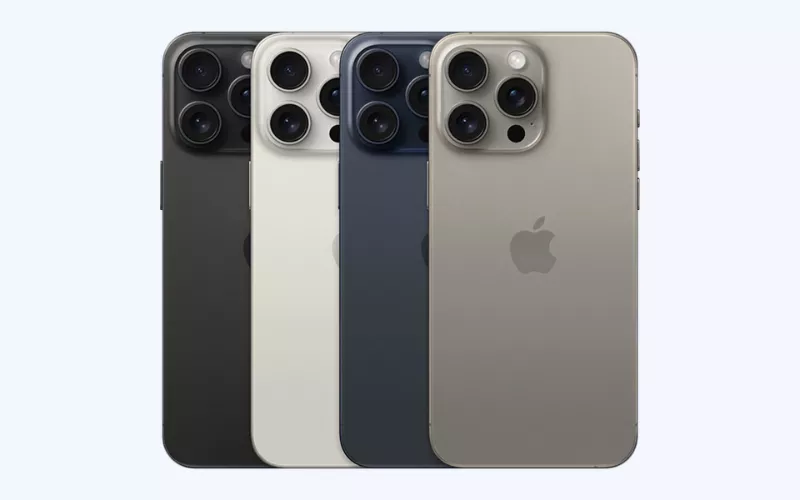
2. Samsung Galaxy S23 Ultra
Screen: 6.8″
Memory: 8GB/12GB RAM
Storage: 256GB to 1TB
Battery: Li-Ion 5,000 mAh
Safety: Knox hardware and software, malware and viruses prevention
Operating system: Android
If you prefer Android to iOS, Galaxy S23 Ultra is one of the most secure options on the market to date. The latest version of this Samsung flagship phone includes numerous updates, including an improved camera, an advanced Snapdragon 8 Gen 2 chip, and a 6.8-inch AMOLED 2x display.
Now, is Galaxy the most secure Android smartphone, really? Here are some cool features that make this device stand out.
- Samsung Knox. Samsung Galaxy users can securely store and access their confidential information through this service. It consists of two layers – hardware and software. Hardware includes an additional processor for extra protection. In turn, Knox-based software is responsible for data encryption and access permission.
- Knox management console. This feature of the Knox ecosystem serves as an extra security layer for admins. With its help, they manage security policies and change device settings when necessary.
- Samsung Message Guard. This new Samsung feature protects users from zero-day attacks that usually occur when a hacker sends an infected image to a smartphone. For now, it works only with Samsung and Google Messages. But in the future, it may also cover some third-party messaging apps and other Google apps.
- Biometric features. Samsung Galaxy offers fingerprint and facial recognition features, enabling users to make sure nobody else can unlock their phones and compromise their security.
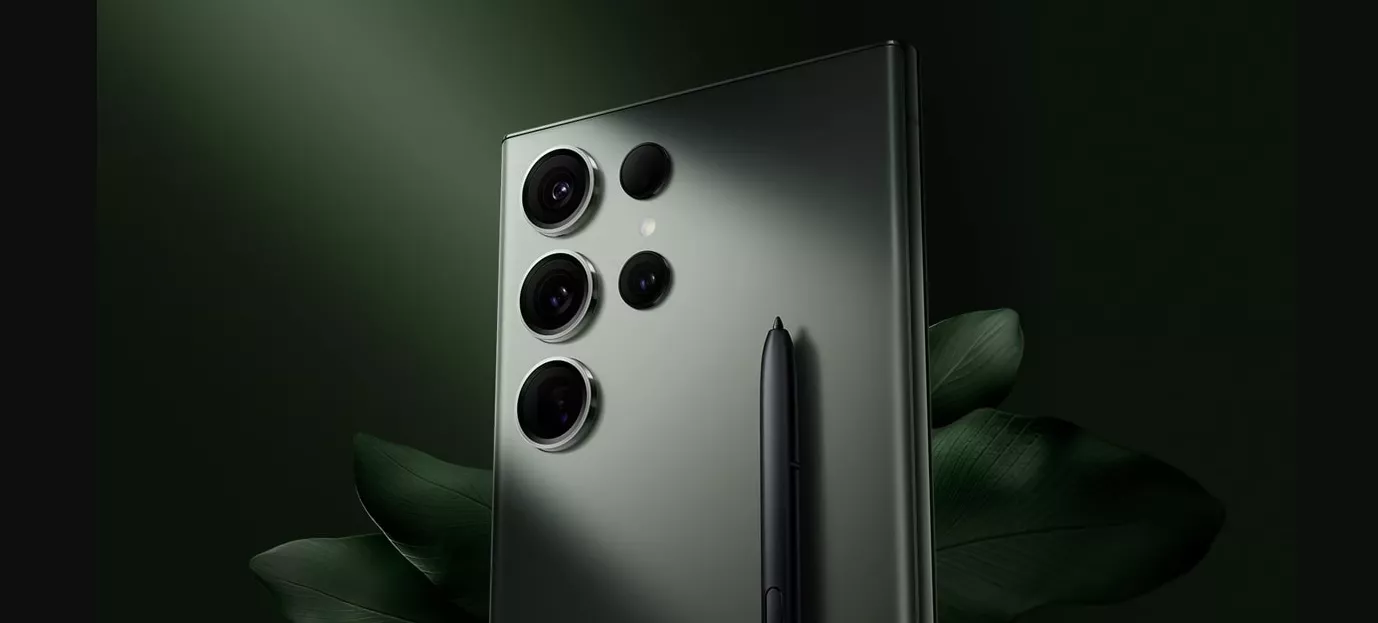
3. Purism Librem 5
Screen: 5.7″
Memory: 3GB RAM
Storage: 32GB
Battery: Li-lon 4,500mAh
Safety: Hardware kill switches
Operating system: Linux-based PureOS
Although not as popular as the two previous options on this list, Purism Librem 5 is often considered the best cellphone for security and privacy, but it may lack full Android app compatibility. It’s based on PureOS – the operating system by Linux that offers multiple layers of user protection.
Here are the most notable features of this smartphone:
- Kill switches. These hardware-based switches (or physical privacy switches) contain Wi-Fi, Bluetooth, cameras, microphone, and cellular. You can turn them off whenever you like to prevent any threats and use your phone with peace of mind.
- Improved privacy. Compared to Android and even iOS, devices running Linux-based operating systems are considered the most privacy-friendly. The same applies to Purism Librem 5 that ensures several additional data protection levels. Moreover, all major location trackers are restricted by default.
- Essential security features and updates. Purism Librem 5 includes all basic cybersecurity features, from app permission control to a built-in VPN.
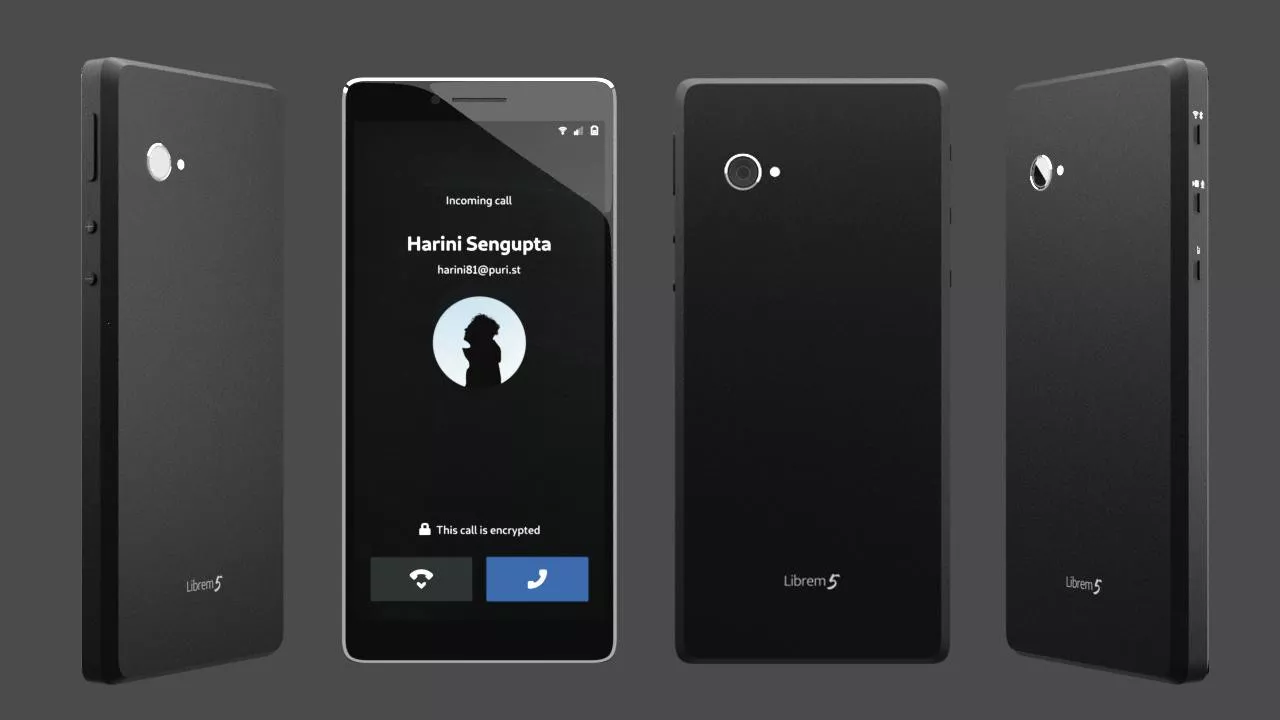
4. Blackphone PRIVY 2.0
Screen: 5.5″
Memory: 3GB RAM
Storage: 32GB
Battery: Li-lon 3,200mAh
Safety: Encrypted communication and file storage
Operating system: Blackphone OS based on modified Android OS
Blackphone PRIVY 2.0 is another security-focused phone that comes with many unique features and capabilities. Here are the most significant ones:
- Encrypted communication. PRIVY Chat and PRIVY Vault make Blackphone the most encrypted phone to date. All of your communication channels, including audio calls, video calls, text messages, and phone databases are encrypted by default. It means that it’s way more difficult for a third-party snooper to interfere with your private conversations.
- Silent Circle’s Silent Phone. PRIVY 2.0 owners automatically subscribe to the Silent Circle’s Silent Phone application. This service allows you to securely send up to 100MB of files to another person who uses Silent Circle.
- No Logs policy. Nobody, including Blackphone itself, can decrypt your messages, calls, or files. The company claims to keep no logs of users’ activities for marketing or analytical purposes. But it’s a paid feature with a 1-year free trial.

5. Google Pixel 7
Screen: 6.3″
Memory: 8GB RAM
Storage: 128GB to 256GB storage
Battery: Li-Ion 4,355mAh
Safety: Titan M2 chip, Guest Mode, facial recognition
Operating system: Android
Google services and devices are often associated with data collection and security vulnerabilities. However, the company did its best to break this stereotype with Google Pixel 7. This phone offers a good number of features to protect users from potential threats. Let’s look at the most important ones:
- Titan M2 security chip. Google placed the newest security chips for bank, ID, and SIM cards to minimize the risk of compromised PINs, passwords, and other credentials. Additionally, you can use Play Protect by Google or manage your device through Google Play Services to avoid malware and viruses.
- Regular security updates and patches. Thanks to the direct involvement of App developers at Android, Google Pixel receives updates more frequently than devices made by third-party manufacturers like Samsung or Asus. It means that potential vulnerabilities and security flaws are fixed even faster.
- Face Unlock and Guest Mode. Like any other secure smartphone these days, Pixel 7 has a face recognition feature preventing unauthorized access to your smartphone. Besides, Google introduced Guest Mode that automatically locks all sensitive data when someone else uses your phone.
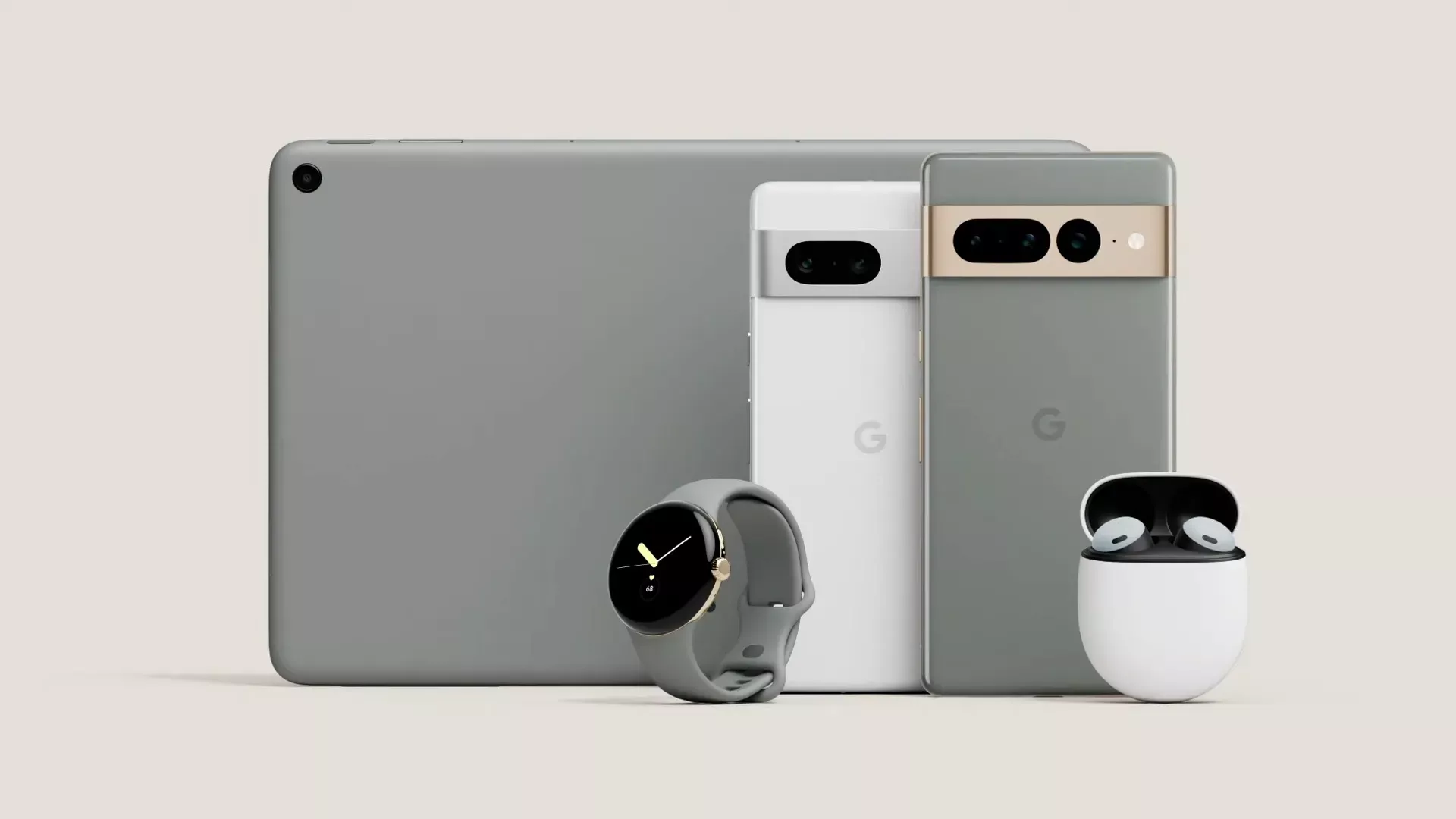
6. Sirin Labs Solarin
Screen: 5.5″
Memory: 4GB RAM
Storage: 128GB
Battery: Li-lon 4,040mAh
Safety: AES-256 encryption, DApps (decentralized applications)
Operating system: Sirin OS
Although Solarin by Sirin Labs is among the priciest smartphones (starting around $13,000), it appeals to users exploring alternative operating systems for secure crypto transactions and decentralized applications. The phone is based on the unique Sirin operating system famous for its support of blockchain technology and peer-to-peer networks.
Here are several most significant cybersecurity features of Sirin Labs Solarin:
- Top-level encryption. Solarin uses AES 256-bit encryption – the most advanced standard to date. It makes communications more private by hiding your traffic from prying eyes.
- Built-in cold crypto wallet. For crypto traders, cold wallets are vital, as they allow for storing digital funds in a more secure place than hot (online) ones. Solarin comes with a built-in cold wallet, which supports Bitcoin, Ethereum, and other popular assets, which makes it the best smartphone for cryptocurrency.

7. Bittium Tough Mobile 2C
Screen: 5.2″
Memory: 4GB RAM
Storage: 64GB
Battery: Li-lon 3000mAh
Safety: Security key management, end-to-end encryption, enhanced durability
Operating system: Two Android-based operating systems
This smartphone’s name definitely reflects its capabilities – it’s a tough, powerful, and well-protected device. Here are some of its most notable security and privacy features:
- Yubiko 5 NFC security key. In addition to a standard set of features included in Android 9, Bittium Tough Mobile 2C provides a reliable authentication feature – Yubiko 5 NFC. It significantly improves hardware security and is an effective method against various cyber threats, such as phishing attacks.
- Bittium SafeMove. The phone comes with a built-in VPN running around the clock. Although it may not be as powerful as some third-party VPN apps, it still enhances your privacy and provides an extra security layer to your device.
- Durability. Bittium Tough Mobile 2C meets various specific durability standards, including MIL-STD-810G and IP67 rating. It means that the physical device is resistant and very hard to break.
- Extra security. Compared to many other Android devices, Tough Mobile 2C has lots of additional cybersecurity functions. To name a few, these are hardware-privacy mode (disables access to Bluetooth, camera, and microphone), end-to-end encryption for messages and calls, SSH security protocol support, and more.
So, what’s the most secure smartphone?
Now that you’re familiar with the most private phones to date, let’s take a look at their most important characteristics for a final comparison.
Smartphone | Operating system | Security features | Encryption | Screen | Memory | Storage | Battery | Price |
Apple iPhone 14 Pro Max | iOS | ✅ A16 bionic chip with ML capabilities | Data Protection (basic Apple encryption) | 6.7″ or 6.1″ | 6GB RAM | 128GB to 1TB | 4,323 mAh | $1,199+ |
Samsung Galaxy S23 Ultra | Android | ✅ Samsung Knox hardware and software | File-based encryption (Android 10 and higher) | 6.8″ | 8GB/12GB RAM | 256GB to 1TB | 5,000 mAh | $1,099+ |
Purism Librem 5 | Linux-based Pure OS | ✅ Three hardware-based kill switches | Encrypted file storage | 5.7″ | 3GB RAM | 32GB | 4,500mAh | $1,999+ |
Blackphone PRIVY 2.0 | Android-based Blackphone OS | ✅ End-to-end encryption | ZRTP protocol with AES-256 encryption | 5.5″ | 3GB RAM | 32GB | 3,200mAh | $799+ |
Google Pixel 7 | Android | ✅ Titan M2 security chip | Default encryption | 6.3″ | 8GB RAM | 128GB to 256GB | 4,355mAh | $449+ |
Sirin Labs Solarin | Sirin OS | ✅ Access to decentralized apps | AES 256-bit encryption | 5.5″ | 4GB RAM | 128GB | 4,040mAh | $13,500+ |
Bittium Tough Mobile 2C | 2 Android-based OSs | ✅ Security key management | Built-in encryption software | 5.2″ | 4GB RAM | 64GB | 3000mAh | $1,800+ |
As you can see, each smartphone we discussed has some significant advantages, security perks, and data protection features. So it’s extremely difficult to name one and only best phone for privacy. Many things depend on your personal preferences and everyday requirements for your mobile device.
Besides, it’s critical to strengthen your defenses with the help of additional tools and third-party applications. Apart from some basic cyber hygiene measures, such as creating strong passwords and using two-factor authentication for your accounts, one of the essentials is installing a reliable virtual private network (VPN) on your smartphone, be it iPhone 15, Samsung Galaxy S23 Ultra, Google Pixel, or else.
Enhance your privacy smartphone setup with a VPN
A VPN is a powerful online privacy and security solution that hides your IP address and moves your online traffic through an encrypted tunnel. Here are several reasons why it’s worth installing a VPN on your mobile device:
- Data encryption. Several phones on this list provide a built-in VPN solution, as well as end-to-end encryption of calls, messages, and other data. But such devices are quite expensive, and the encryption they provide doesn’t cover your entire Internet traffic. In turn, a reliable third-party VPN service will do the job for a much better price. For example, VeePN uses AES-256 – the most powerful encryption standard with several up-to-date VPN protocols, including OpenVPN, IKEv2, and WireGuard.
- Online security and privacy. Thanks to powerful cybersecurity features, such as VeePN’s NetGuard, you will get protected against various cyber threats, from phishing attacks and public Wi-Fi dangers to malware-infected websites, ads, and links. Moreover, a VPN is an effective measure against third-party monitoring. It conceals your online identity by hiding your IP address and other sensitive information from hackers, snoopers, marketers, Internet service providers (ISPs), and other nosy third parties.
- Online freedom. When you’re traveling, you may find it challenging to access the desired content due to geoblocking and various forms of Internet censorship. However, when connected to a remote VPN server, you change your virtual location. It allows you to bypass those limitations and access the desired apps, websites, streaming services, and games with ease.
Not all VPNs are as powerful and efficient, though. In particular, free services often lack some important security features, so they may fail to protect your privacy on a smartphone. Moreover, a free VPN may collect your private data and sell it to third parties to make a profit.
That’s why we recommend VeePN – a top-rated VPN service provider compatible with most types of devices and operating systems, including Android and iOS. Here’s how to get started with VeePN in several simple steps.
How to set up a VPN on an iPhone
If you own an iOS device, take these steps to set up a VPN for iPhone:
- Enter the VeePN website and sign up.
- Choose the most fitting subscription plan.
- Download the VeePN app from App Store and install it on your iPhone.
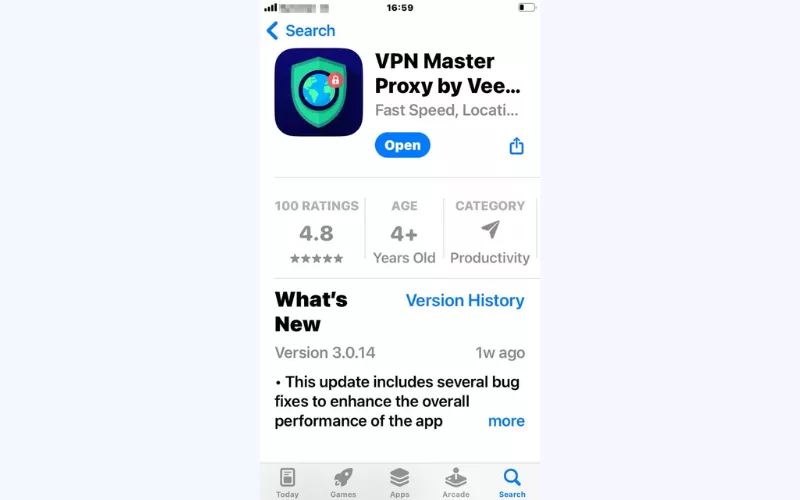
- Open the VeePN app.

- Select the preferred server location (VeePN provides access to 89 locations in 60 countries to choose from) to change your IP address.
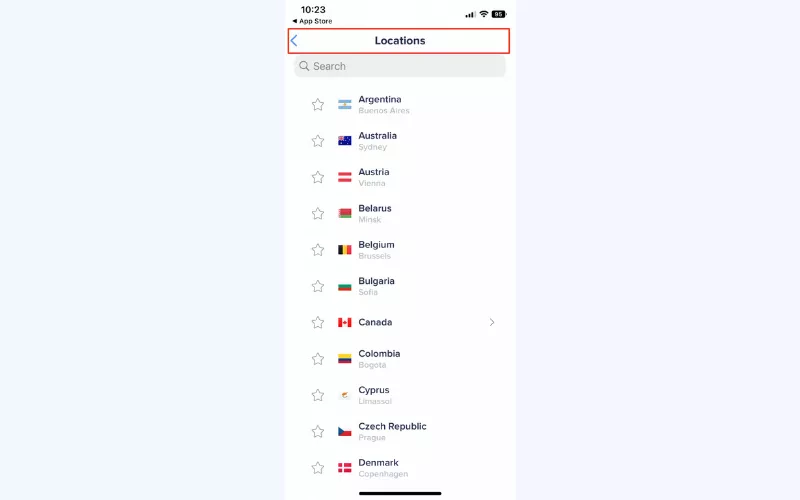
- Configure VeePN to your needs in Settings and turn it on.
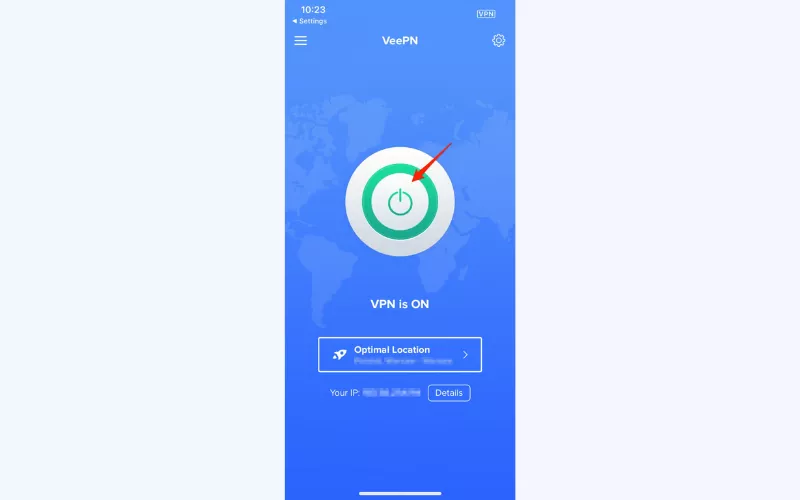
Note that you can use VeePN on iOS 10 or higher. For more details, read our detailed guide on how to use a VPN on an iPhone.
How to set up a VPN on Android
Now, here’s how to start using a VPN for Android.
- Sign up for VeePN on the official website.
- Choose the desired pricing plan.
- Download VeePN from Play Store or the .apk file from the website.
- Open the app and log into your account.
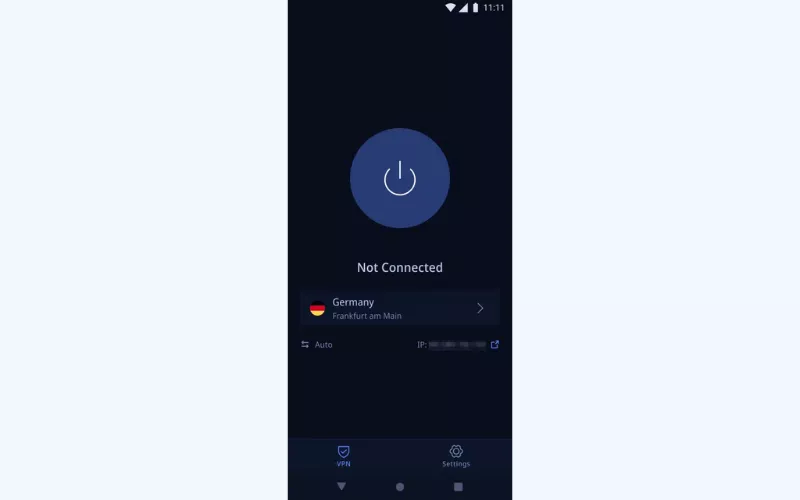
- Choose the most suitable server location to spoof your IP or use the Optimal Location feature for the fastest connection possible.

- Adjust VeePN settings and turn it on.
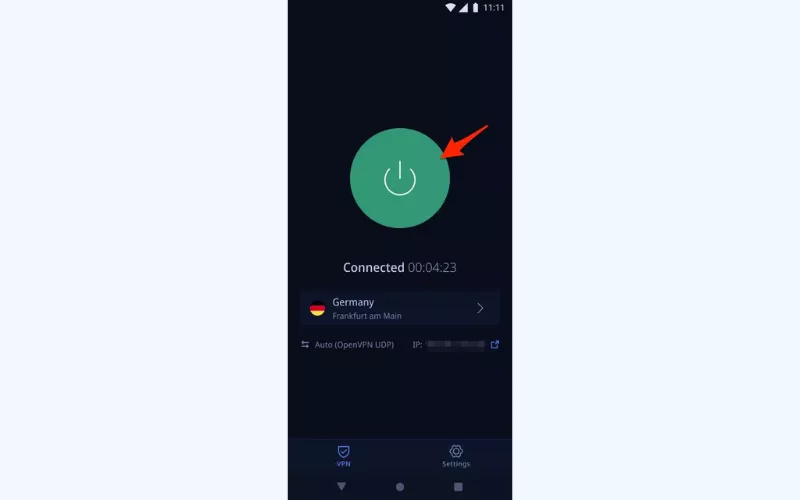
Note that Android users can use VeePN on versions 13, 12, 11, 10, Pie, Oreo & Nougat. For more information, check out our recent blog post on how to set up a VPN on Android.
Check out VeePN pricing plans and try it now with a 30-day money-back guarantee to ensure your smartphone’s safety and protect your privacy, whatever device you prefer.
FAQ: Best Phone for Privacy
Although some consider iPhone the most secure and private smartphone, that is not the case. Indeed, Apple armed its flagship phone with many robust features to enhance users’ safety and privacy, from App Tracking Transparency to Face ID. However, many phones come with other decent privacy features like end-to-end encryption, built-in kill switches, and so on. For more details, check out this article.
It’s hard to choose the safest smartphone since there are numerous devices focused on privacy and security. Apple iPhone 15 Pro Max, Samsung Galaxy S23 Ultra, and Google Pixel 7 are the most popular well-protected smartphones. But you can also opt for some less-known secure smartphones, such as Purism Librem 5, Blackphone PRIVY 2.0, Sirin Labs Solarin, and Bittium Tough Mobile 2C. For more information, read this article.
The best smartphones for privacy should ensure top-level encryption, app permission control, and the ability to quickly switch off your camera, microphone, and location-tracking services. Some examples of privacy-focused phones are Purism Librem 5 and Blackphone PRIVY 2.0. Read this article to learn more.
No phone is entirely untraceable since you’re dealing with a phone service provider who can track some information about your traffic. However, you can use a privacy-focused phone like PRIVY 2.0, Purism Librem 5, or Bittium Tough Mobile 2C. Besides, it’s a good idea to enhance your data protection with a reliable VPN like VeePN. It spoofs your IP address and hides your digital footprint, making it much harder for third parties to monitor your activities and track your location.
There are a couple of smartphone companies designing their devices with privacy protection and cybersecurity in mind. Here are some of the best options available:
- Purism Librem 5
- Blackphone PRIVY 2.0
- Bittium Tough Mobile 2C
- Sirin Labs Solarin
Also, some popular manufacturers, including Apple, Samsung, and Google, constantly improve their products to protect users’ privacy. For more information, read this article.
VeePN is freedom
Download VeePN Client for All Platforms
Enjoy a smooth VPN experience anywhere, anytime. No matter the device you have — phone or laptop, tablet or router — VeePN’s next-gen data protection and ultra-fast speeds will cover all of them.
Download for PC Download for Mac IOS and Android App
IOS and Android App
Want secure browsing while reading this?
See the difference for yourself - Try VeePN PRO for 3-days for $1, no risk, no pressure.
Start My $1 TrialThen VeePN PRO 1-year plan






